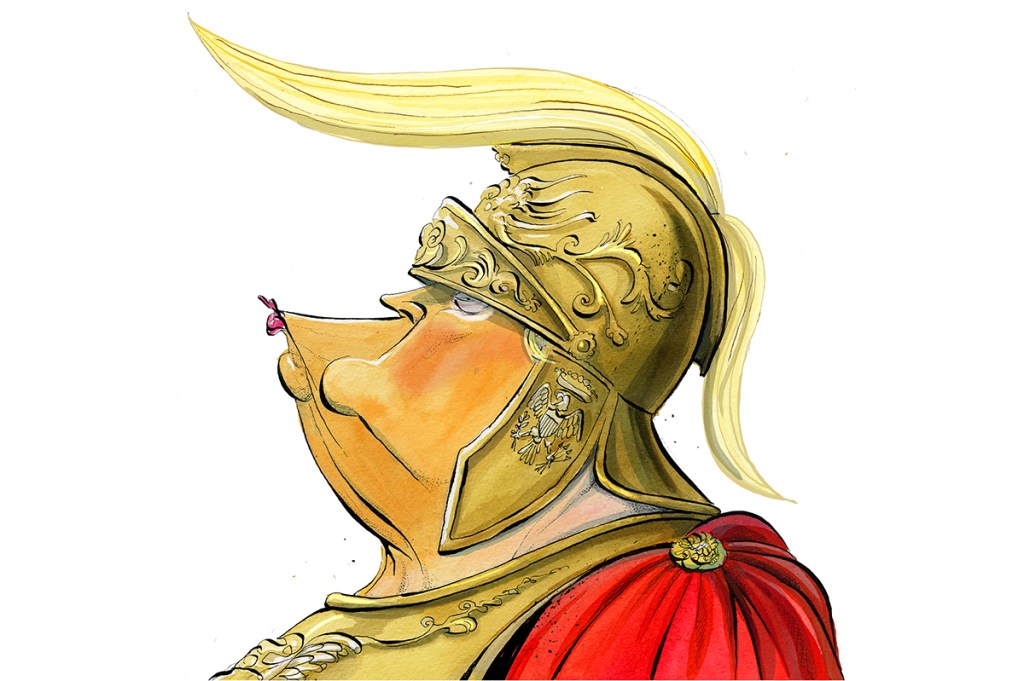Like many commentators who have struggled to understand the reasons for the inveterate hatred of Donald Trump among the swank people who actually run the country, I have generally come up with two answers.
The first is aesthetic.
Trump does not look like, act like or talk like a typical politician. He has a funny hairdo, seems to have a fake tan and his taste in clothes and food are infra dignitatem. He consorts with people who organize fights and other riff-raff. Ronald Reagan was a movie actor, something for which he was mercilessly pilloried by the New Yorker–New York Times set in the run-up to and throughout his presidency. But Donald Trump hosted a demotic reality TV show, which was even worse.
The second and probably more important reason for the inveterate hatred of Trump among the soft-palmed is what is sometimes called his “populism” but which is perhaps more accurately described as his deep challenge of the entrenched interests of the status quo.
As I have several times noted (including in this column last year) Donald Trump “represents an existential threat to the denizens and institutions that occupy the Swamp (the administrative state, the deep state, etc.).” Notwithstanding the many achievements of his first term, Trump was unable to do much to “drain the Swamp” as he had promised.
But he wanted to. And it is clear that, were he to be reelected and allowed to take office, he would be much more effective this time around in destroying the malignant, self-engorging beast we sum up with the synecdoche “Washington.”
All of which is to say that part of the reason that Donald Trump is so cordially disliked by the clerks who govern us is that he threatens their perks and perches. If he were able to promulgate his agenda, they would no longer be in a position to govern or harass us.
Their dislike is thus partly instinctual. From this perspective, Trump Derangement Syndrome is an expression of the instinct for self-preservation.
This helps to explain the comic side of the panic among the nomenklatura when they contemplate the return of Trump.
Trump wants “revenge and retribution,” Joe Biden recently said at the White House Correspondents’ Dinner. “We have to take this seriously.” What makes the panic comic is the fact that, even as they warn that Trump would use the DoJ to go after his enemies should he return to power, they, in power now, have mobilized the DoJ and the media to go after him.
In part, as I have written on several occasions, this is a matter of what psychologists call “projection,” i.e., “attributing to others attitudes or behaviors that one entertains or engages in oneself.”
For reasons that remain obscure, at least to me, the comic aspect of this scenario never seems to break in upon those under the spell of TDS. They never seem to ask, as you might think they would given the blatant hypocrisy of their behavior, “Are we the baddies?” No: they just float along in self-admiring oblivion.
A good example was Joe Biden’s concluding toast at the WHCD: “To a free press, to an informed citizenry, to an America where freedom and democracy endure.” The assembled scribes applauded, but to an outsider such words are like salt in a wound.
Which brings me to the Roman historian Tacitus (c. AD 55-120). In his first book, a short biography of his father-in-law the general Agricola, Tacitus recounts his important role in the pacification of Britain. Much of the action takes place during the unhappy reign of the Emperor Domitian, who ruled from AD 81 to his death by murder in 96.
One theme of the book concerns the question of how one can act honorably under a tyranny. Agricola had somehow got on the wrong side of the emperor and was therefore denied an important preferment towards the end of his career. Agricola had done a brilliant job in Britain.
But success can be just as provocative as failure to the powerful. In one of the book’s most famous lines, Tacitus observes that proprium humani ingenii est odisse quem leasers: “It is human nature to hate him whom you have done wrong by.”
I wonder whether that penetrating observation offers another explanatory piece in the puzzle of anti-Trump hatred. The Establishment, the uniparty, has made a scapegoat of Donald Trump. They have singled him out for mistreatment, calumny and pseudo-legal harassment in ways both novel and extreme. Is it not, as Tacitus suggests, human nature to hate someone whom you have so conspicuously harmed?
I think it is.
I also think that Tacitus offered another insight into our situation earlier in the Agricola. An invariable refrain in the vituperation against Donald Trump revolves around his supposed threat to “Our Democracy™.” Joe Biden mentioned that, too, in his WHCD remarks. It reminded me of the speech Tacitus puts in the mouth of the Caledonian chieftain Calgacus. Reflecting on the destruction the Romans had wrought in Britain, Calgacus bitterly remarks that auferre, trucidare, rapere, falsis nominibus imperium, atque ubi solitudinem faciunt, pacem appellant: “To plunder, murder and steal they misname empire, and where they make a desert, they call it peace.”
If you substitute “democracy,” or perhaps “Our Democracy,” for “peace,” the line retains its chilling pertinence.


























Leave a Reply